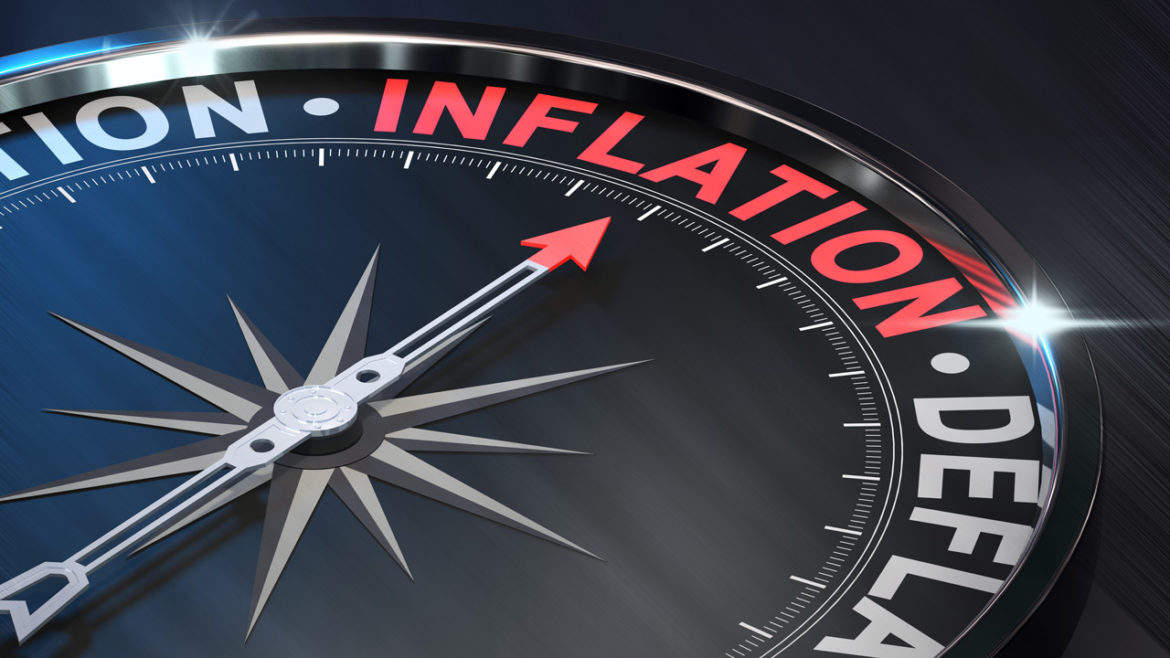Precious metals are apparently waking up. And here is where you can find the best deals.
Site:
Precious metals news
Gold's appeal in Japan is surging, marking a significant shift since 1971 when President Nixon detached the dollar from gold. This detachment led to the gold price floating from $35 per troy ounce. Now, 51 years later, gold has reached $2,000 per troy ounce, a remarkable 57-fold increase against the US dollar. Currently, gold is priced around $1,980 per troy ounce. This trend underscores the contrast between the unlimited printing of fiat money by governments and the limited supply of gold, highlighting gold's enduring value and appeal as a stable investmen
Surging demand in China has pushed gold prices above international levels, driven by economic uncertainty and a weaker yuan. New York gold futures exceeded $2,100 per ounce, with Chinese prices now consistently higher than global benchmarks. This increase reflects gold's growing appeal in China as a stable investment amid domestic and global financial challenges.
 Inflation Here to Stay, Eroding Purchasing Power Indefinitely: Jim Grant
Inflation Here to Stay, Eroding Purchasing Power Indefinitely: Jim GrantDec 13, 2023 - 11:56:55 PST
Jim Grant, editor of "Grant's Interest Rate Observer," expects Federal Reserve Chair Jerome Powell to remain cautious due to persistent high inflation. Grant criticizes the Fed's previous underestimation of inflation and predicts gradual rate cuts, later than the market anticipates. The Fed, which misjudged inflation as "transitory" in 2021, raised rates 11 times since March 2022. Banks like ING and UBS forecast varying timelines for rate cuts, while the Fed plans a modest reduction in 2024.
 America on Path to Becoming World's Poorest Nation: Predicts Robert Kiyosaki
America on Path to Becoming World's Poorest Nation: Predicts Robert KiyosakiDec 13, 2023 - 11:50:24 PST
American entrepreneur Robert Kiyosaki, during a podcast interview, criticized the Biden Administration's policies, claiming that "America is going to be the poorest country in the world, starting now." Reflecting on his visit to Mumbai's slums, Kiyosaki noted the growing prevalence of similar conditions in America, indicating a significant decline in the country's living standards.
Dec 13, 2023 - 11:41:14 PST
The Federal Reserve's disregard for the quantity theory of money, which connects monetary supply with economic outcomes, seems flawed. The rapid increase in the money supply (M2) since 2020 led to high inflation, and its current sharp decline suggests an impending recession and possible deflation by 2025. This situation highlights concerns about the Fed's current monetary strategy and the risk of economic downturns.
The Federal Reserve has adopted a more dovish stance than anticipated, reducing its rate forecasts closer to market expectations. The median policy rate for 2023 is now set at 5.375%, with further decreases expected through 2026. This adjustment follows notable market movements, including a surge in stocks, gold, bonds and a dollar decline. There's uncertainty about how Fed Chair Powell will address market expectations for earlier rate reductions.
The U.S. retail sector faces a bleak outlook, potentially leading bankruptcies into next year due to persistent inflation and high interest rates. 2023 has already seen 591 corporate bankruptcies, the most since 2020, largely driven by the end of ultra-low interest rates. Many companies are teetering on the brink, unable to manage their debts in this challenging economic climate.
 Treasury Secretary Yellen Blames Bidenomics' Unpopularity to COVID Aftermath
Treasury Secretary Yellen Blames Bidenomics' Unpopularity to COVID AftermathDec 13, 2023 - 07:55:38 PST
Treasury Secretary acknowledges significant rent increases, a concern for many Americans. "Bidenomics," President Biden's economic policy brand, struggles to gain widespread approval. A Bankrate survey reveals that 50% of Americans feel their financial situation has worsened since the 2020 election, posing a challenge for Biden's re-election campaign. Only 21% see improvement, while 26% see no change.
 Worse than 2008 Crises: China's Free Fall in Banking Sector Amid $4 Trillion Real Estate Downturn
Worse than 2008 Crises: China's Free Fall in Banking Sector Amid $4 Trillion Real Estate DownturnDec 13, 2023 - 07:11:18 PST
China's banking system is at risk of a severe crisis, with its real estate sector's troubles potentially wiping out $4 trillion. The sector, plagued by debts and defaults, has left enough empty homes to house 3 billion people. This crisis could have a major impact on the highly-levered banking system, potentially exceeding the $700 billion losses of the U.S. Great Financial Crisis says Hayman Capital CIO Kyle Bass.
Inflation is dead!At least that's what you would think if you listen to government officials and talking heads in the financial media.So, how is this victory over inflation working out for the average person?Not so great.
 Core Producer Price Inflation Drops to 2.0%, Approaching Three-Year Low"
Core Producer Price Inflation Drops to 2.0%, Approaching Three-Year Low"Dec 13, 2023 - 05:45:43 PST
In November, U.S. Producer Prices were unchanged, with Core PPI at its lowest year-over-year increase since January 2021, largely due to lower energy prices. Despite this seemingly positive trend, the outlook remains uncertain, heavily influenced by global commodity prices, China's economic stimulus decisions, OPEC+ oil production, and U.S. strategies to maintain low gas prices during the election year.
 Argentina Tackles Deficit Crisis: Peso Devaluation and Spending Cuts Initiated
Argentina Tackles Deficit Crisis: Peso Devaluation and Spending Cuts InitiatedDec 13, 2023 - 05:40:21 PST
Argentina plans a 50% devaluation of its peso to 800 per dollar, cuts in energy subsidies, and cancellation of public works, under new Economy Minister Luis Caputo. This drastic action targets the country's deep fiscal deficit and soaring inflation. The IMF supports these measures for economic stabilization, but their implementation carries significant risks.
 Re-election Time: Biden Fires up Price Wars, Now Says ‘Too Many Things Unaffordable’
Re-election Time: Biden Fires up Price Wars, Now Says ‘Too Many Things Unaffordable’Dec 13, 2023 - 05:29:58 PST
In November, U.S. inflation slightly cooled, but President Biden continues to face challenges in proving the effectiveness of his economic policies. The Consumer Price Index indicated a minor deceleration in inflation due to lower energy costs, despite increases in food and housing prices. Despite these signs of a "soft landing," Biden acknowledges the ongoing struggle with high living costs and pledges to tackle issues like prescription drug costs and corporate pricing practices. This approach marks a shift from his earlier optimistic tone on economic progress, influenced by negative polling on his economic policies.
 U.S. November Budget Deficit Reaches All-Time High Due to Soaring Interest Expenses
U.S. November Budget Deficit Reaches All-Time High Due to Soaring Interest ExpensesDec 13, 2023 - 05:22:17 PST
The U.S. federal budget deficit in November soared 26% from the previous year to a record $314 billion for the month, mainly due to higher interest costs. This figure surpassed economists' expectations of $301.05 billion. Federal revenues increased by $23 billion to $275 billion, marking a 9% rise from the previous year.
Dec 13, 2023 - 05:12:09 PST
The "Everything Bubble," encompassing bonds, real estate, and stocks, is showing signs of collapse in 2023. Banks are distressed due to Federal Reserve's quantitative tightening and interest rate hikes, causing bond values to drop. High corporate default rates are rising, with expectations of further increases in 2024. The housing market is stagnant, with high prices and interest rates, leading to affordability issues and potential bailouts for struggling homeowners. Overall, the economic landscape is strained, with looming concerns over further deterioration in 2024.
Dec 13, 2023 - 05:06:26 PST
President Biden attributes high prices to greedy businesses, overlooking the impact of the Federal Reserve's monetary policy and the fiat money system since 1971. Critics argue that the real cause of widespread price increases is the Fed's policies, not consumer spending or business practices. The devaluation of the dollar encourages immediate spending over saving, further exacerbating inflation. Despite nominal wage increases, real wages decline, with gold seen as a more stable value. The solution proposed is for Congress to reduce spending and reform the Federal Reserve.
Why do virtually all the mainstream pundits think the Federal Reserve has won the inflation fight?Maybe it’s just wishful thinking. They want the Fed to win so it can go back to what it does best – creating more inflation with artificially low interest rates and quantitative easing.Regardless, most of the mainstream punditry hyped the November CPI report as more positive news on the inflation front. The CNBC headline reflected the consensus - inflation "slowed" last month.Except it really didn't.
 SRSROCCO COMMODITY CULTURE INTERVIEW: Falling Energy Supply Is Bad News For Financial Assets
SRSROCCO COMMODITY CULTURE INTERVIEW: Falling Energy Supply Is Bad News For Financial AssetsDecember 13, 2023
It was great chatting with Jesse from Commodity Culture on why the Energy Cliff will be BAD NEWS for financial assets. Unfortunately, the market doesn't understand this as they continue to purchase a record amount of U.S. Treasuries and global bonds of all flavors...
Gold is quietly regaining importance in the global monetary system, driven by central banks' declining trust in the dollar and losses from rising interest rates affecting bonds. European central banks may use gold reserves to address balance sheet losses, avoiding the need for government recapitalization.
The Bom Jesus, a Portuguese ship lost in 1533, was found in Namibia's desert in 2008 with two thousand pure gold coins and tens of thousands of pounds of copper ingots, marking a significant archaeological discovery. It likely sank near Namibia's coast during a storm, later emerging in the desert as coastlines receded.



